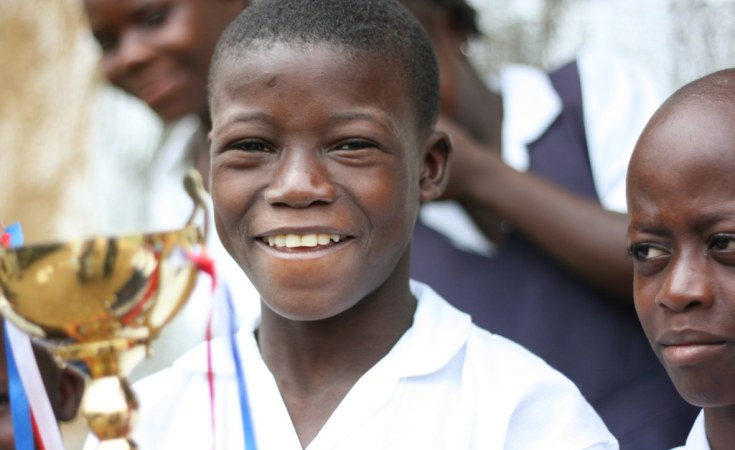New York — At the opening of the United Nations Millennium Development Goals (MDGs) Summit on Monday, mixed reactions greeted the World Bank's announcement of an additional U.S.$750 million funding of basic education in sub-Saharan Africa and other parts of the world that are not on track to meet the education MDGs by 2015.
The president of the World Bank Group, Robert B. Zoellick, announced the increased funding during his remarks for the opening plenary of high-level meetings on the MDGs. He lauded efforts of the World Bank's International Development Association (IDA) fund, which since 2000, he said, has helped immunize 311 million children; provided access to water and sanitation for 177 million people; helped more than 47 million people access health services; and provided nutrition supplements to 99 million children.
However, going forward, Zoellick said the World Bank was going to focus on what he called the "access agenda" – helping to ensure access to quality schooling among other basic needs.
The World Bank's managing director, Ngozi Okonjo-Iweala, echoed this at an event co-organized by the Global Campaign for Education (GCE) and the Education for All – Fast-Track Initiative (EFA–FTI). She said the additional $750 million would be used to improve access to good quality schools, for scholarships for girls, conditional cash transfers and for school grants.
"These are proven interventions that are producing results… We know what works and so we are scaling up," she said.
Attending the event were also former British prime minister Gordon Brown and H.M. Queen Rania of Jordan. Summing up the basis for the bank's renewed commitment to the education MDGs, Queen Rania said in her speech that, "education doesn't just beat poverty; it beats disease [and] inequality. And for girls, education is nothing less than a life saver, from stigmatism, insecurity and violence."
But other reactions to the World Bank's scaling up of basic education funding were less enthusiastic.
Claire Godfrey, senior policy adviser at Oxfam, referred to the $750 million to be spent over five years as a welcome contribution, but "a drop in the ocean" given the World Bank's financial weight.
The board of directors of the EFA–FTI said the additional funding represented about a 40 percent increase in the bank's basic education lending over the past five years. Thus, Godfrey argues that the "40 percent increase" isn't really an increase.
She said the GCE had cautioned that much of the funding was merely getting the World Bank back on track as its education aid to the poorest countries had fallen 40 percent over the past decade. "Sixteen billion [dollars] is what is needed to make a real difference to the goal of basic education for all children," Godfrey said.
With the view that the World Bank's financing of basic education is now back to the level it was suppose to be, Joanne Carter, co-chair of GCE US and Results, called the announcement "a welcome correction in course."
According to a new GCE report on the state of basic education funding in the world, 69 million children are out of school, and many donors, such as France and Germany, "misuse their education aid budgets to underwrite their own university system." The report said poor countries are facing cuts of as much as $4.6 billion to their education budgets. Somalia, the report said, was the worst place in the world to be a school child.
Quoting figures from the GCE report, chair of the EFA-FTI board of directors, Carol Bellamy, said the World Bank funding would help to put 69 million out-of-school children back into the classroom.
The GCE has called on the World Bank to ensure that most of the education spending goes to FTI-endorsed countries in Africa and urged delivery of the package over a three-year period.


